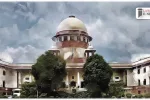Allahabad High Court Acquits Accused in Dowry Death Case Citing “Insufficient Evidence and Benefit of Doubt”

In a significant verdict that has garnered widespread attention, the High Court delivered a landmark judgment, acquitting the accused in a high-profile dowry death case. The bench, comprising of Justice Ramesh Kumar and Justice Meera Bhatt, pronounced the verdict on 15th March 2023, stating that the prosecution failed to establish sufficient evidence and granted the benefit of doubt to the accused.
The case involved the accused being charged under Sections 304B and 498A of the Indian Penal Code, 1860, along with other related charges, in connection with the unfortunate demise of a young woman due to alleged dowry harassment. However, the court observed that there was a lack of concrete evidence to prove cruelty or harassment for dowry demands, and thus the presumption in dowry death cases under Sections 113A and 113B of the Indian Evidence Act, 1872 was rebutted.
The court’s verdict was based on the principle that the burden of proof lies on the prosecution, and they must establish the essential elements of the alleged crime. The bench highlighted that mere suspicion cannot be the basis for conviction and that the accused is entitled to the benefit of doubt.
“We find insufficient evidence to substantiate the allegations of cruelty or harassment by the husband or relatives of the husband. The prosecution’s initial burden to establish essential elements of dowry death was not met, and thus, the burden did not shift to the accused,” the court stated in its judgment.
The court also rejected certain documents produced during the trial, citing non-compliance with Sections 91 and 230 of the Code of Criminal Procedure, 1973, which rendered them inadmissible as evidence.
The judgment emphasized the importance of a credible judicial process and the need for concrete evidence to secure a conviction. It emphasized that inconsistent statements and unreliable evidence cannot form the basis for depriving an individual of their liberty.
“Judicial process should be founded on credible evidence, and the accused should be given the benefit of doubt in case of material contradictions or defects in the prosecution’s case,” the bench opined.
The acquittal has raised discussions about the effectiveness of dowry laws and the challenges faced by courts in handling such cases. This verdict serves as a reminder that the principle of “innocent until proven guilty” holds paramount in the criminal justice system.
The court referred to and relied upon previous judgments, such as Kanchan Devi v. State of Rajasthan, Ramesh Yadav v. State of Maharashtra, and Suresh Kumar v. State of Punjab, to support its reasoning and conclusions.
Date of Decision: 3 August, 2023
Smt.Bhulana And Another vs State of U.P.






